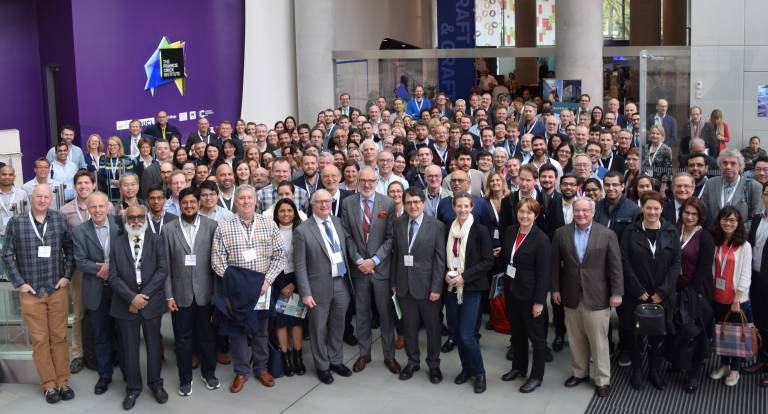The 7th London-Innsbruck Colloquium on Status Epilepticus and Acute Seizures
16 April 2019
The 7th London-Innsbruck Colloquium on Status Epilepticus and Acute Seizures took place at the Crick Institute 7-9 April 2019. It was held under the joint patronage of UCL Queen Square Institute of Neurology, the ILAE British Branch and Paracelsus University in Salzburg.

The Colloquia were founded in 2007 and have been held on biennially since then, alternating between Britain and Austria. Over the years, the meetings have grown progressively in size and scope, and on this occasion, there were over 400 delegates present from 48 different countries. The proceedings of previous meetings were published in Epilepsia and in Epilepsy & Behavior and are have been a useful summary of papers and discussions at the colloquia, and the publication from this meeting is scheduled later this year.
Since 2007, there have been many developments in the field of status epilepticus. Indeed, is it no exaggeration to say that this is one of the fastest growing in the whole of epilepsy, and that the colloquia have played a part in advancing the subject. On this occasion, there were ten plenary sessions, some basic and some clinical and some mixed. New departures include a session on controversies, and also an invited Nobel laureate talk by Prof James Rothman. There were also three workshops, held as parallel sessions, and two Data Blitz sessions covering a range of clinical and basic topics. There was an international faculty of 45 persons from 15 countries, and with Queen Square and Great Ormond Street strongly represented. There were plenary session talks by Professors James Rothman, Dimitri Kullmann, Matthew Walker, Helen Cross, Shamima Rahman, Ronit Pressler, Simon Shorvon and sessions chaired by Professor Matthias Koepp and Dr Rob Wykes. The meeting was organized and chaired by Professors Simon Shorvon and Matthew Walker (from UCL Queen Square Institute of Neurology), and Professor Eugen Trinka (from Paracelsus University Austria).
The meeting was a great success, and there was a warm and informal atmosphere where much networking and discussions were possible both in the sessions and during the breaks. A conference dinner was held at the Athenaeum Club. It was a brilliant antidote to Brexit, and a demonstration that international collaboration and friendships still flourish in academic circles.
Further information
For additional information, please contact Simon Shorvon (s.shorvon@ucl.ac.uk)
 Close
Close

